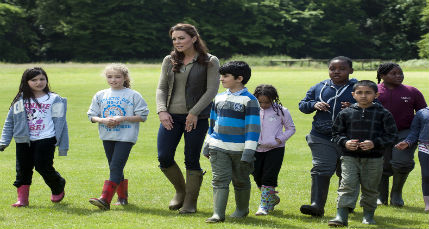Towards a cultural pedagogy
Generally speaking, all learners are potentially capable of achieving most learning objectives, provided that certain conditions of learning are met: adequate feedback, sufficient time on task, an awareness of the import of the material under study and, of course, an appreciation on the part of the teacher of the cultural context in which the learning is embedded. In this light, information about what styles and methods both teachers and learners employ in order to solve problems can tell us more about the context of learning and teaching than just knowing that the learner has provided the correct answer. In other words, it is more important to take a process perspective on schooling rather than a product one, inasmuch as there are a whole lot of mechanisms at work in the “process” which can affect the “product.” This perspective is an essential component of a pedagogy that addresses cultural needs. As Thomas (2000: 80) notes, [r]esearch which identifies different cultural pedagogies, and describes the impact they may have on improving educational quality, will be a welcome antidote to the possible unifying excesses that educational change in the context of modernisation and globalisation is likely to bring.
The Nature of Pedagogy and Cultures of Teaching
In this chapter, we will address two issues: the changing nature and traditions of pedagogy, and the belief that teaching is to be viewed as a set of cultures.
The Changing Nature and Traditions of Pedagogy
The subject of pedagogy can be traced to the time of the Greeks, but in modern times most of what permeates developments in pedagogy has come from psychologists and educationists such as Piaget (1971), Bruner (1966), Shulman (1986), Schon (1983), and Bennett (1993), to name but a few. Sifting through the relevant literature, it is possible to discern three different theoretical traditions pertaining to research into teaching and teacher education that have emerged in the 1990s. Two of these traditions have been termed by Zeichner (1992) as “academic” and “social efficiency,” while the third tradition, referring to teaching as a “cultural process,” has been examined by Olson & Bruner (1996), Kruger & Tomasello (1996), and discussed by Thomas (1997a,b).
Apropos of the first one, that is, the “academic” tradition, we could say that it draws on evidence which stakes out that teachers should have a sound knowledge base, in order for them to promote comprehension among their students. Shulman (1987) delineates seven such knowledge bases, which include content knowledge, general pedagogical knowledge, curriculum knowledge, pedagogical-content knowledge, knowledge of learners and their characteristics, knowledge of educational contexts, and knowledge of educational ends. His pedagogical reasoning model builds on these knowledge bases, identifying the skill of a teacher’s understanding, which plays a pivotal role in the development of comprehension among the learners.
The “social efficiency” tradition draws on research evidence from studies on teaching and learning in classrooms, which take a constructivist perspective on learning. Within this tradition, children are viewed as being actively involved intellectually with learning which accompanies the development of teaching skills and teacher knowledge to promote this very involvement (see Thomas, 2000: 84). Bennett (1993) has put forward a five-stage task model of teaching (see figure below), which places emphasis not only on the task at hand but also on teacher intention to involve learners in the process of teaching.
- Teacher intention
- Task
- Presentation
- Pupil Task Performance
- Assessment / Diagnosis
- Teacher intention (and so forth)
The third tradition views teaching as a “cultural process” which reflects different cultures of teaching. Thus, the following discussion on the “teaching as a set of cultures” has an affinity with this tradition, since it is about how the various cultures of teaching might inform practitioners to develop pedagogies that would provide teachers (and learners) with guidance and enhanced forms of explanation in class.







